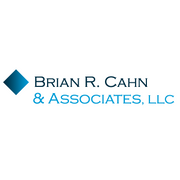How Inheritances Affect Chapter 7 & Chapter 13 Bankruptcy

When you receive an inheritance, the value of your estate increases, which will likely have an effect on any bankruptcy proceedings currently in progress. This is true whether you have filed for Chapter 7 bankruptcy, which eliminates most types of unsecured debt, or Chapter 13 bankruptcy, which restructures debt into a long-term payment plan. Here's a look at how an inheritance impacts each type of filing.
Chapter 7
If a person receives an inheritance within the 180 days prior to filing for Chapter 7, they'll need to protect it with a bankruptcy exemption. If they receive an inheritance 180 days after the filing date, the bankruptcy trustee can claim the money and apply it to the filer's outstanding debts. After the 180-day window has passed, the trustee has no legal right to confiscate an inheritance.
The only way to retain the inherited asset is to exempt it from your Chapter 7 bankruptcy filing. Exemptions are categories of properties and assets that you can keep when filing for bankruptcy. They're intended to cover the essentials a person needs to stay clothed, housed, and employed throughout the bankruptcy process. If your attorney can find ways to fit the inheritance into an exempt category, you will often be able to keep it.
Chapter 13

In Chapter 13 bankruptcy, the trustee doesn't sell your property. You repay what you owe via a three- to five-year payment agreement with the courts. However, any property or assets you acquire during those three to five years will be considered part of your estate.
If the inheritance is received during the 180 days before filing, you will typically have to pay your unsecured creditors a minimum amount that is equal to the nonexempt portion of the inheritance. If it's received after filing, the trustee can request that the courts issue an action requiring you to pay all or some of the inheritance into the Chapter 13 plan.
Bear in mind that in both Chapter 7 and Chapter 13 bankruptcies, an inheritance is considered your property on the day the decedent died. Even if you aren't due to actually receive the inheritance for months or years, it will still be counted as part of your estate.
Inheritances and their role in bankruptcy can be a complex topic to navigate on your own. To understand your rights and legal options, contact Brian R. Cahn & Associates. Based in Cartersville, GA, Brian Cahn has more than 25 years of experience serving clients throughout the northwest part of the state. He offers representation in Chapter 7, Chapter 11, and Chapter 13 bankruptcies. Call (770) 382-8900 to schedule a consultation or learn more about the firm online.
About the Business
(23 reviews)
Have a question? Ask the experts!
Send your question

